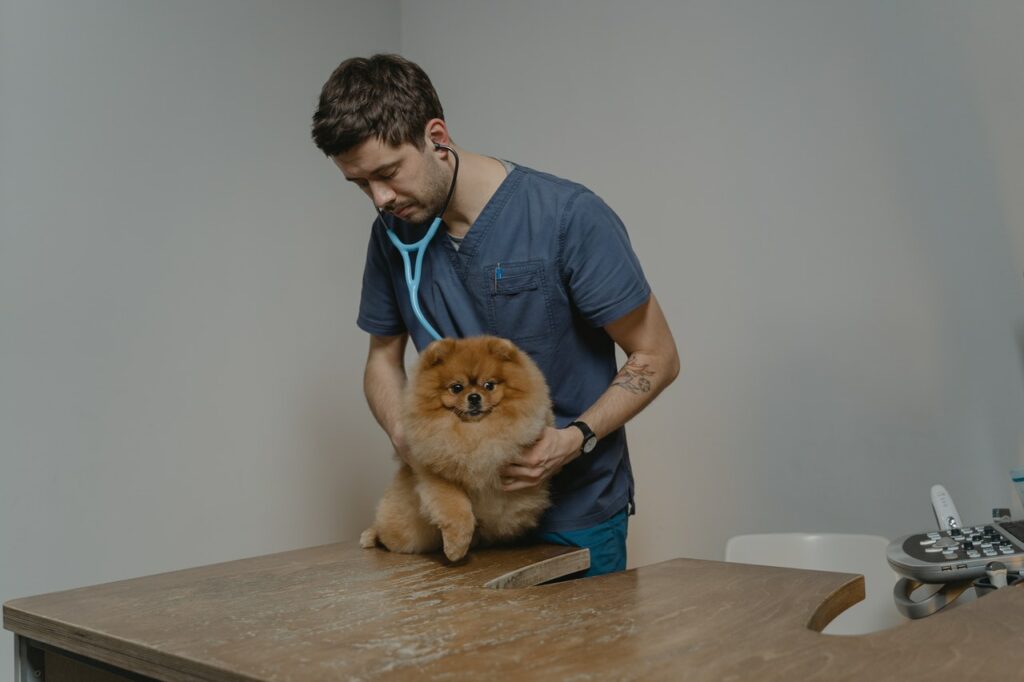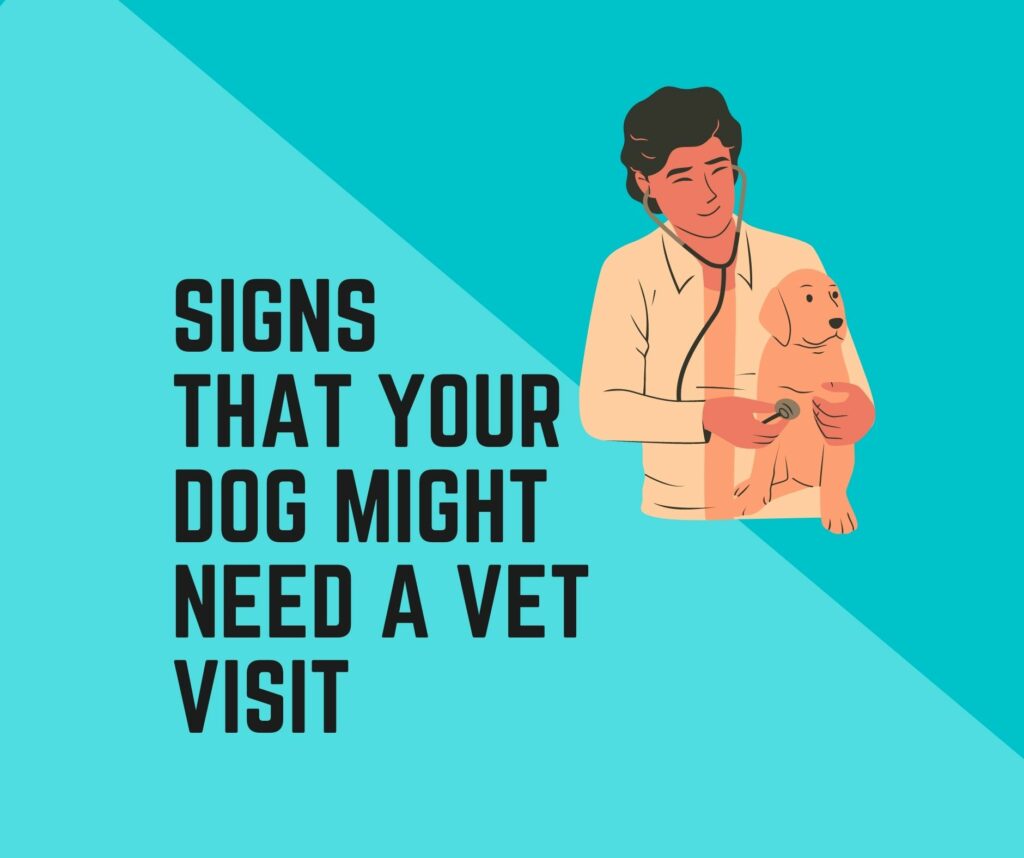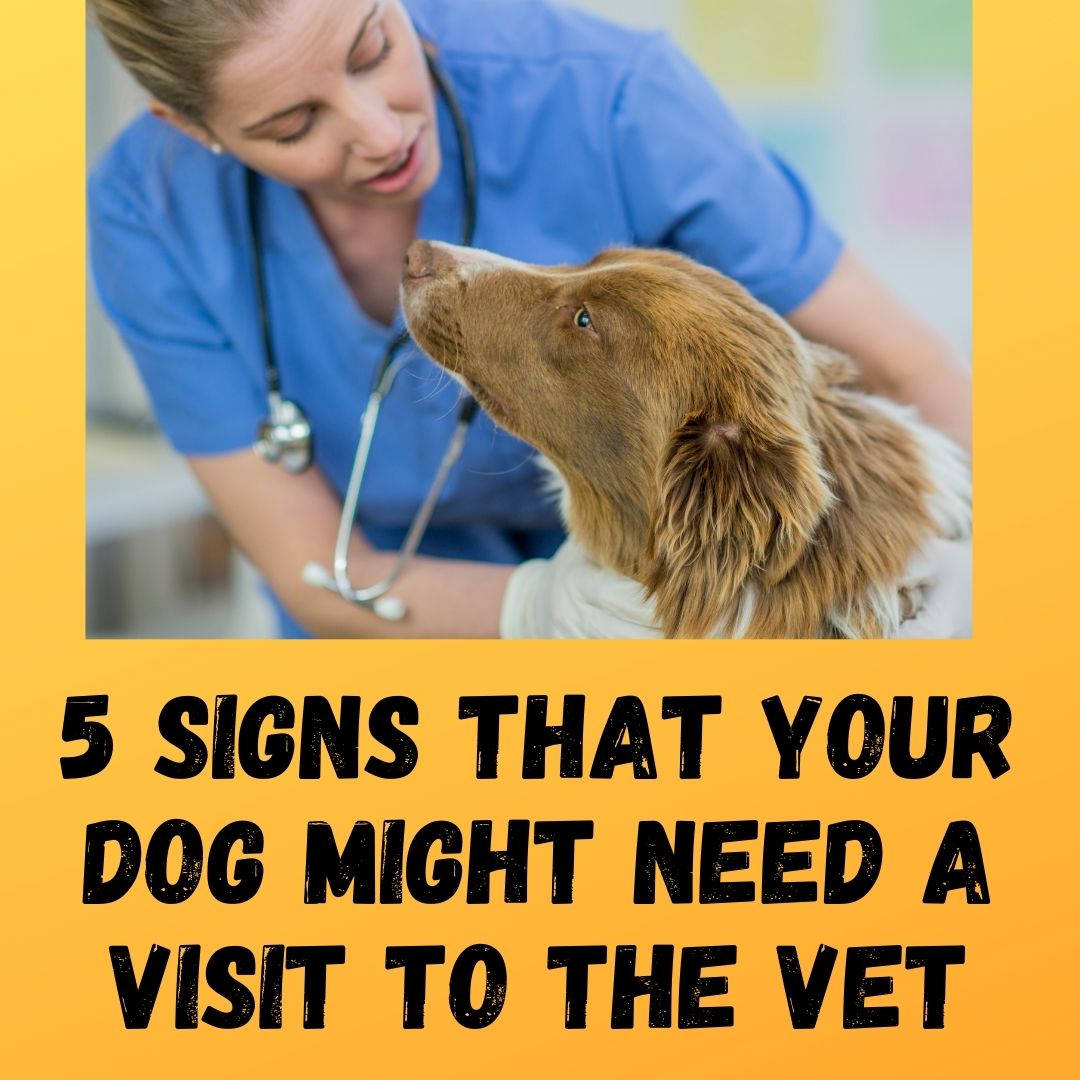Dogs are incredible companions to have, no one will deny that. If you’re a dog owner, then you must know how devastating it feels whenever they fall ill. You might catch yourself thinking, They were perfectly fine yesterday. What went wrong?
It is recommended that we all pay a visit to a doctor every now and then for a routine check-up. However, most of us tend to leave it out of our schedules. This happens in the case of our dogs as well.
We don’t take them to the vet unless it’s necessary. But by the time we notice there’s a problem, it might just be too late for your dog. Unlike a human, they cannot tell you about any pain they might be experiencing.
As a dog owner, it is your responsibility to look out for your furry friend and watch for developing problems. So when should you take your dog to see the vet? What are the signs and symptoms that you need to be mindful of?

Post Contents
To New Dog Parents: Do Your Research
It’s very normal to get excited about adopting a new puppy. However, don’t get swallowed up by the euphoric feeling.
If you are looking forward to adopting one, then you should make an effort to learn about puppies. Do proper research so you know how to care for your furbabies.
They are in the phase where they will experience a lot of growth, and a sudden change in environments might stunt their growth.
Be sure to know what’s right for them and what you need to do to make them feel at home.
Some Common Health Issues in Dogs
While some health conditions are specific to certain breeds, others are quite common in all kinds of dogs. These issues aren’t noticeable at first glance but can become fatal if left untreated.
Obesity
Believe it or not, most dogs (around 60 percent) are prone to become obese at some point in their lives. As we all know, obesity equates to an increased risk of developing arthritis, heart diseases, high blood pressure, and in the worst-case scenario, cancer.
Dogs are naturally active, but if you aren’t careful about their diet or don’t take them out for a walk now and then, they may very easily gain weight.
Arthritis
Arthritis, or inflammation of the joints, is commonly found in senior dogs and often renders them immobile. This condition is very painful, and your dog won’t be able to walk normally; this means that they won’t be able to exercise as often, which will eventually cause them to become obese.
Fortunately, since it’s a common problem, there are many ways to prevent such a circumstance. With the proper care and attention, your dog can be kept happy and healthy.
Dental Problems
Did you know that dogs need to brush their teeth too? Just like us, they run the risk of having their teeth eaten away by bacteria. Such bacteria also attack their gums, and the bad news is, they run the risk of developing these problems very early on in their lives. So keeping their teeth clean is a must!
Ear Infections
Dogs tend to have very dirty ears, which can often lead to severe ear infections. Most owners don’t even notice them until they pay a visit to the groomers. Ear infections aren’t always caused by dirt or ear wax; sometimes they can also be the result of excessive cleaning.
Luckily, ear infections can be detected early on—if you’re paying attention. If you give your dog a hug and notice a foul smell near their ears, they may have developed an ear infection.
Other Infections and Allergies
Dogs can encounter many different kinds of infections, and perhaps one of the more dangerous ones is uterine infections. They are also prone to have allergies which can be caused by food, harsh shampoos, or seasonal factors.

Signs That Your Dog Needs to See a Vet
Now that you have a vague idea of what to expect, the signs and symptoms will be more noticeable to you. Here are some of the commonly observed signals that your dog needs to see a doctor soon.
A Change in Their Eating Habits
Some diseases affect your dog’s appetite. While it’s completely normal for them to skip a meal occasionally, it is extremely unusual for them to do it more than two days in a row. There are many reasons why this could happen.
It’s possible that your dog is simply not in the mood to eat. If that is the case, they will eat at some point if not immediately. It can also be because of moving houses or traveling. These kinds of changes tend to stress dogs out, and they simply need time to adjust to the changes before they can start eating normally again.
However, if the lack of eating persists then it might be because of something more serious. Gum diseases can sometimes cause your pet discomfort when chewing; because they probably can’t chew, they cut back on their food intake to avoid the pain.
In some cases, a loss of appetite is an indicator of viral infections, liver and heart diseases. Therefore, if your pup isn’t eating right, then consult with your vet as soon as possible.
Sudden Laziness or Tiredness
Dogs are normally quite playful and are always up for a good game whenever you pick up a ball. If they suddenly start to exhibit laziness, then it could point to some underlying problems. Lethargic dogs will often refrain from playing with you or walking around the house.
Although it is sometimes caused by fatigue or the weather, you should keep in mind that if your dog has been sluggish for quite some time, you should probably seek medical attention.
Patchy Coat
With some dogs, it’s easier to notice when something isn’t right. If you happen to observe bald patches or if your dog’s coat suddenly looks dull and dry, it could be that they are suffering from some kind of illness. This is especially visible in dogs who have very heavy coats, like Samoyeds or Pomeranians.
Frequent Vomiting
Though it is normal for a dog to throw up sometimes, it can be a matter of concern in certain circumstances. For instance, if your dog has vomited several times, or if you saw them vomiting blood, then it’s a clear sign that you need to rush them to the nearest vet.
It is also common for frequently vomiting dogs to have a high fever. You might also want to check their body temperature.
Blood in Stool/Loose Motion
If your dog’s stool looks unusually dry and hard, then it could be pointing toward diabetes or dehydration. Other concerning signs include seeing worms or blood in their stool.
In this case, a loose motion that continues for over twenty-four hours is also a sign that there might be something wrong with your dog.
Excessive Weight Loss
Whenever you notice that your dog, who was nice and healthy, is suddenly losing a lot of weight, you should schedule an appointment with your vet.
Excessive weight loss can be an indicator of some very serious conditions. In the worst-case scenario, this excessive weight loss can be due to cancer.
Sudden Excessive Thirst
Staying hydrated is a must for both you and your dog. You should always keep an eye on the amount of water your dog is taking. Thus, you should check to see if your dog’s water bowls need refilling.
If you find yourself refilling the bowl more than you usually do, then it’s time to consult a vet. Maybe it’s not just the weather that’s affecting your dog; excessive thirst is a sign that they might be suffering from diabetes or kidney disease.
Eyes Look Irritated or Cloudy
Eye infections normally spread the fastest and also manifest in dangerous ways (and can eventually lead to blindness). Whenever you’re trying to clean your dog’s eyes, make sure to notice if they’re irritated, red, or cloudy.
Their eyes might also be tearing up excessively, which means that there’s a lot of discharge. You should take your dog to a vet as soon as possible in that case, to prevent the further spreading of the infection.
Old Age
Now age isn’t necessarily a sign or symptom of illnesses. It is, however, the time when your dog is most vulnerable. Due to their age, they might become extremely inactive, leading them to become overweight. They might also develop kidney stones or infections that could threaten their lives.
In this case, having regular appointments with your vet is crucial. You want to make sure you are giving them a proper diet and the necessary healthcare for them to continue living a healthy, happy life.
Hereditary Diseases in Dogs
Different breeds of dogs have different genetic make-ups. What I mean to say is, every dog is genetically diverse. It is this genetic diversity that sometimes makes some dog breeds more susceptible to certain diseases than others.
It’s called genetic predisposition. It simply means that the combination of genes that makes up your pup tends to make them vulnerable to some diseases; they are bound to develop the condition, so you ought to be careful by frequently communicating with your vet.
To help you better understand, let’s consider talking about cancer as an example. Scientific studies have shown that Golden Retrievers, German Shepherds, and Rottweilers are more prone to developing cancer than other breeds.
This might be very heartbreaking news for you if you own one of these dogs yourself. This is why it is always a good idea to stay in regular contact with your vet.
To Conclude
At some point, our dogs are bound to fall ill. Having routine visits to the vet not only makes sure they are doing well, but also allows you to know what you have to do in the event your dog hits a rough patch.
Prevention is better than cure, so make sure you are doing everything in your power to give your dog a long and happy life, regardless of whether they are susceptible to certain diseases or not.

94% of pet owners say their animal pal makes them smile more than once a day. In 2007, I realized that I was made for saving Animals. My father is a Vet, and I think every pet deserves one. I started this blog, “InPetCare”, in 2019 with my father to enlighten a wider audience.
